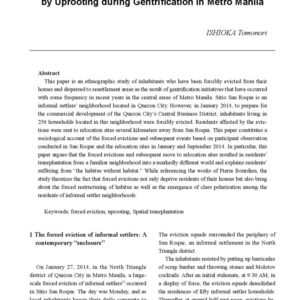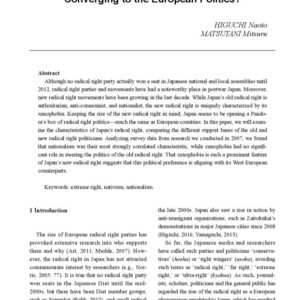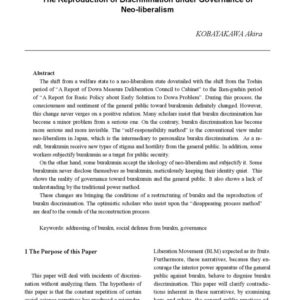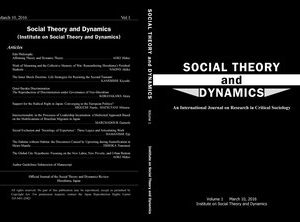Description
This paper aims at examining leadership within three forms of mobilization among Brazilian migrants in Japan in the 2000s: Brazilian schools, local organizations and workers unions.
The multisited approach stresses the limits of the ethnic leadership approach generally used in the theory of social movements for analyzing the collective action of minorities.
In contrast, the determinants and realities of leadership incarnation among Brazilian migrants in Japan highlight the intersectionality of the processes of race, gender and class.
The concept of intersectionality helps to capture these processes among Brazilian leaders and also points out the various configurations in which these processes are related.





